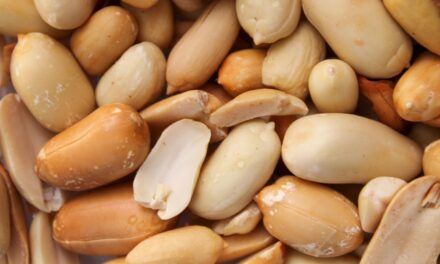Toronto, Canada – A groundbreaking study led by researchers at the University of Toronto has identified a compound in ginger, furanodienone (FDN), as a potential treatment for inflammatory bowel disease (IBD). The study, recently published in Nature Communications, highlights how FDN interacts with a key nuclear receptor, pregnane X receptor (PXR), to reduce intestinal inflammation.
Through screening various ginger compounds, researchers discovered that FDN binds selectively to PXR, a receptor known to regulate inflammation and metabolism. Activation of PXR by FDN suppresses the production of pro-inflammatory cytokines, which are responsible for intestinal damage in IBD patients.
“We found that we could reduce inflammation in the colons of mice through oral injections of FDN,” said Jiabao Liu, a research associate at the Donnelly Centre for Cellular and Biomolecular Research at the University of Toronto. “This discovery emphasizes the potential of natural products in the development of cost-effective and accessible treatments for IBD.”
A Step Toward Natural Therapeutics
IBD affects millions worldwide, with around 25% of cases diagnosed before the age of 20. Current treatments often involve long-term medication use, which can lead to significant side effects and economic burdens. While dietary adjustments and herbal supplements have provided some relief for patients, the specific chemical compounds responsible for reducing inflammation have remained unclear until now.
The study found that FDN not only reduces inflammation but also promotes the production of tight junction proteins, which help repair damage to the gut lining caused by chronic inflammation. Notably, the effects of FDN appear to be localized to the colon, minimizing the risk of adverse effects elsewhere in the body.
Safer and More Effective Treatment Option
Nuclear receptors like PXR act as sensors within the body, regulating responses to foreign substances, including dietary components and pharmaceuticals. While PXR activation can improve gut health, excessive stimulation can alter the metabolism of other drugs. Researchers found that FDN, being a relatively small molecule, occupies only part of PXR’s binding site, allowing for controlled activation that enhances its therapeutic benefits without overstimulation.
“The rise in IBD cases worldwide is linked to shifts toward processed diets high in fat and sugar,” explained Henry Krause, principal investigator of the study and professor of molecular genetics at the University of Toronto’s Temerty Faculty of Medicine. “A natural compound like FDN offers a promising alternative to conventional therapies, as it does not suppress the immune system or impact liver function—common drawbacks of existing treatments.”
Future Research and Potential Applications
While these findings are promising, further research is necessary to determine FDN’s safety and efficacy in human trials. The ability to extract and refine this compound from ginger could pave the way for new, more affordable IBD treatments with fewer side effects.
Disclaimer
This article is for informational purposes only and does not constitute medical advice. While FDN shows potential as a treatment for IBD, further research, including clinical trials, is required to confirm its safety and effectiveness in humans. Patients should consult healthcare professionals before considering any new treatment options.











